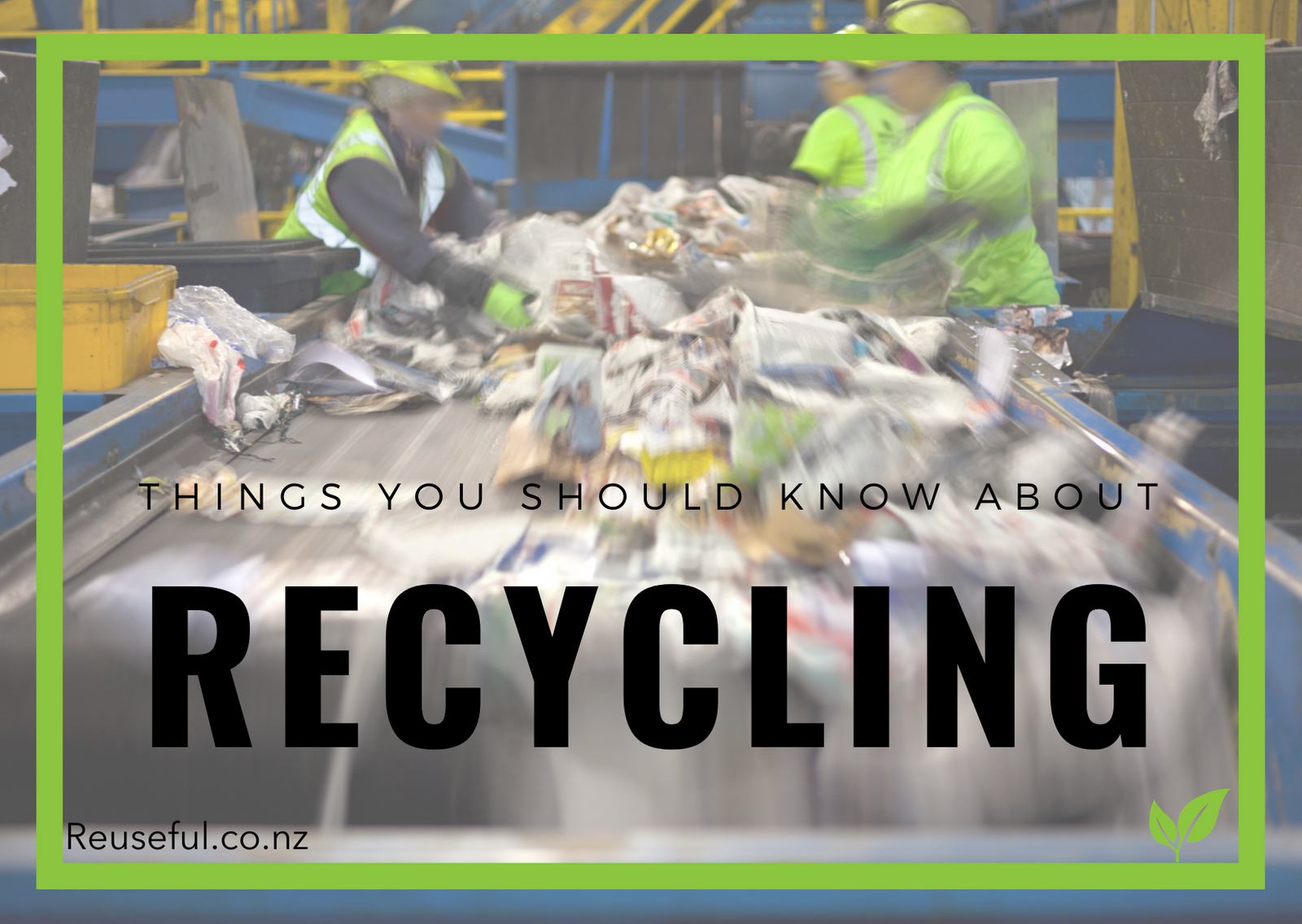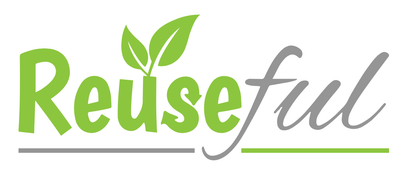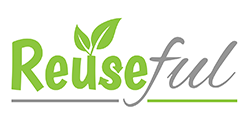Your Cart is Empty
FREE Shipping for orders over $120.
FREE Shipping for orders over $120.
Eco Shop
Eco Brands
Eco Gifts

6 Things You Should Know About Recycling
October 22, 2020 4 min read
This week, 19th - 25th October 2020, is 'Recycling Week' here in NZ. And a great opportunity to remind ourselves of some of the rules around recycling, so that we can make good informed decisions with regards to our purchases and the waste we produce.
The first thing that's important for us to start thinking more carefully about, is that when we purchase a product, we are also purchasing the waste that comes with it. We need to make ourselves responsible for the waste so that we can start making good decisions that will help to protect our planet, not destroy it.
I've compiled a list of 6 things that we should know about recycling in New Zealand, if we are to help support the processes in place and continue to reduce the amount of rubbish that we send to landfills.

1. Glass, aluminium, cardboard and paper are the easiest materials to recycle.
These materials can be recycled again and again. This knowledge will help us when we're purchasing products. Where possible, first choose products that come in glass jars, aluminium tins and cardboard. That way, you can be sure that the packaging will be recycled and not sent to landfills.
2. Only plastics with numbers 1 and 2 are easily recycled in New Zealand.
Although all plastics with numbers 1-7 can be put into recycling bins, in New Zealand we only really recycle numbers 1 (PET) or 2 (HDPE) plastics. The other numbers just aren't worth recycling as the process is too difficult and so the value of the recycled plastic is too low for manufacturers to make any profit from.
(Source: recycle.co.nz)
So what does that mean for us? We need to stop looking for recyclable signs and start looking for the type of plastic it's made from. If it's a 1 or 2, it is likely to be recycled. Any other number and it is more likely to end up in a landfill.

3. It is vital to clean all items that you put into your recycling bin.
Our recycling centres don't clean the materials before they recycle it. That's our job. If we send anything with food or liquids in them, they get picked out and sent to landfill. If the food or liquids leak, then entire bags or bins can be contaminated and the whole lot gets sent to landfill.
But don't worry, they don't need to be spotless, just a quick rinse is good enough.
4. Recycling materials takes less water and energy than producing virgin materials.
Did you know... that recycling one tonne of paper saves 31,700 litres of water? It also saves on a massive amount of energy that would be used to fell trees, transport them and then grind them into pulp.
When it comes to buying items, whatever they may be, it is our responsibility to make good choices, but we need a good level of knowledge in order to do that.
We need to think about the life span of those items. Have they been made from recycled materials? Or are they made from brand new virgin materials? Can they be fully reused and then recycled and reused again? Or is it serving one purpose, just once before heading to landfill to sit for a thousand years? These are the kind of questions we need to be asking ourselves before each and every purchase, because we can be sure in most instances that the businesses and companies selling us those products only have one concern... money!

Souce: FinalStraw
5. It is our responsibility to support recycling systems.
If we always choose to purchase products made from brand new virgin materials then as consumers we are putting more value on those items and manufacturers will continue to produce more and more! However, if we choose to purchase items made from recyclable materials we are putting more value into those processes and we help them to become more successful.
We may think that we're just one little consumer with no power, but we have all the power. We just need to use it. If we all stopped buying brand new materials, big businesses would be forced to change. Don't leave it up to governments and massive corporations, use your spending powers to drive the change we want to see for the good of our environment!
6. Finding Zero-waste or Reusables options is better.
We have lived our entire lives with rubbish bins being the way to make things we no longer want or need go away. But we've done it mindlessly, never really considering where it goes. As we're becoming more aware of our impacts on the environment this is starting to change.
Recycling is one way to reduce waste going to landfill, but the system is far from perfect. A lot of materials, especially plastics can often only be recycled once before they end up in landfills anyway.
So what's the answer?
Wherever possible choose to purchase items with zero-waste or if packaging is needed, try to use reusables as much as you can.
Next, choose glass, aluminium and cardboard packaging, to help encourage a circular economy.
Finally choose to purchase items that are already made from recycled materials to help support recycling businesses and to add value to recycled materials.
Let's work together to make landfills a thing of the past.

This post has been chosen byTwinkl to support their articleTwinkl's Top Tips for a Plastic Free July, this website was also included inTwinkl’s Sustainability Campaign.
Subscribe
Sign up to get the latest on sales, new releases and more …


